Understanding Display Energy Certificates in London: Compliance and Benefits for Public Buildings
For public buildings and properties frequently accessed by the public in London, a Display Energy Certificate (DEC) is a legal requirement designed to promote transparency and improve energy efficiency. Unlike an Energy Performance Certificate (EPC) which estimates potential energy performance, a DEC reflects the actual energy consumption of a building over the previous year. This blog explores the laws governing DECs, the assessment process, certification requirements for landlords and public authorities, council mandates, and pricing details to help building managers and landlords stay compliant.
Legal Requirements for Display Energy Certificates
Display Energy Certificates are mandated under the Energy Performance of Buildings Regulations for public buildings in England, Wales, and Northern Ireland. Buildings that require a DEC typically:
- Are occupied by public authorities or institutions providing public services.
- Have a total useful floor area greater than 250 square metres.
- Are frequently visited by the public.
For buildings over 1,000 square metres, DECs must be renewed annually, while buildings between 250 and 1,000 square metres have DECs valid for 10 years. DECs must be displayed prominently in a public area, usually in an A3 size format, to inform visitors about the building’s energy usage.
Failure to display a valid DEC and the accompanying Advisory Report can result in fines of up to £1,500 enforced by local authorities. The Advisory Report provides recommendations for improving energy efficiency and reducing carbon emissions.
The Process of Obtaining a Display Energy Certificate
Obtaining a DEC involves several key steps:
- Initial Assessment: An accredited Low Carbon Energy Assessor collects data on the building’s actual energy consumption over the past year, including electricity, gas, and other fuels.
- Site Visit: The assessor inspects the building’s systems such as heating, cooling, lighting, and ventilation to understand energy usage patterns.
- Data Analysis: Using official software, the assessor calculates the building’s operational energy rating, comparing it against benchmarks.
- Report Preparation: The DEC and the accompanying Advisory Report are produced, outlining the energy rating and practical recommendations for improvement.
- Submission and Display: The DEC is registered with the national register, and a physical copy must be displayed prominently within the building.
The process requires cooperation from building managers and access to energy consumption records for accuracy.
Certification Process for Landlords and Public Authorities
Landlords or managing authorities must ensure:
- The DEC is issued by a qualified and accredited Low Carbon Energy Assessor.
- The certificate is valid and displayed according to regulations.
- The Advisory Report is available for review and used to guide energy-saving measures.
- Records of DECs and reports are maintained for inspections by local authorities.
Proper certification and adherence to DEC requirements demonstrate legal compliance and commitment to sustainability.
Council Requirements in London
London borough councils enforce DEC regulations as part of their environmental and licensing policies. Public buildings and those providing public services must:
- Provide a valid DEC and Advisory Report during licensing or inspection processes.
- Display the DEC prominently to inform occupants and visitors.
- Implement recommendations from the Advisory Report to improve energy efficiency where feasible.
Non-compliance can lead to enforcement actions including fines and restrictions on building use.
Pricing of Display Energy Certificate Services in London
The cost of obtaining a DEC depends on building size, complexity, and the assessor’s fees. Typical pricing ranges are:
- Buildings between 250 and 1,000 m²: £300–£700
- Buildings over 1,000 m²: £700–£1,500+
Prices may vary based on urgency, data availability, and additional consultancy services. Many providers also offer energy-saving advisory support alongside DEC issuance.
Booking Your Display Energy Certificate London
For landlords and public authorities seeking professional and accredited services, booking your Display Energy Certificate London through trusted providers ensures compliance with government regulations and supports energy efficiency goals. Their experienced assessors deliver thorough evaluations, detailed reports, and practical recommendations tailored to your building.

Talk To Us!
Have Questions? Call Us Today for Expert Advice & Instant Assistance.
020 8609 7777
Booking assistance & Support
What is a Display Energy Certificate (DEC)?
A DEC shows the actual energy consumption of a public building over the past year and rates its energy performance on an A-G scale.Which buildings in London require a DEC?
Public buildings over 250 square meters that are occupied by public authorities and frequently visited by the public must display a DEC.How long is a DEC valid?
For buildings over 1000 m², a DEC is valid for one year and must be renewed annually. For buildings between 250 m² and 1000 m², the DEC is valid for 10 years.What is the difference between a DEC and an EPC?
A DEC reflects the actual energy usage of a building, while an EPC estimates potential energy efficiency based on building design and features.What is a Recommendation Report?
A Recommendation Report accompanies the DEC and provides suggestions for improving the building’s energy efficiency and reducing consumption.Where must the DEC be displayed?
The DEC must be prominently displayed in a public area, visible to visitors, typically in A3 size or larger.Who enforces DEC compliance in London?
Local authorities enforce DEC regulations and can issue fines for non-compliance.What are the penalties for not displaying a valid DEC?
Fines can be up to £1,500 for failing to display a DEC and additional penalties for not having a valid Recommendation Report.How is the DEC energy rating calculated?
The rating is based on actual energy consumption data collected over the previous 12 months, including fuel types like electricity, gas, and district heating.How can I obtain a DEC for my London building?
You must hire a qualified Low Carbon Energy Assessor who will collect energy data, produce the DEC and Recommendation Report, and register them with the government.

Fire Risk Assessment

Gas Safety Certificate
Gas Safety Certificate – Domestic – Meter & Upto 2 appliances
£57.99 Book NowGas Safety Certificate – Domestic – Meter & Upto 4 appliances
£77.99 Book NowCarbon Monoxide Alarm
£80 Book NowGas Safety Certificate – Domestic – “Discounted Offer” Boiler Service + Gas Certificate & 2 appliances
£89.99 Book NowGas Safety Certificate – Commercial – 1 appliance
£199 Book NowGas Safety Certificate – Commercial – 2 appliances
£245 Book NowGas Safety Certificate – Commercial – Boiler Service
£280 Book Now

Electric Safety
Studio Appartments Electrical Safety Certificate (EICR)
£65 Book NowPAT Testing Up To 10 Items
£58 Book NowDomestic Electrical Safety Certificate EICR 1 – 3 Bedroom – 1 Consumer Unit Up to 12 Circuits
£99 Book NowDomestic Electrical Safety Certificate EICR 4 Bedrooms – 1 Consumer Unit Up to 12 Circuits
£120 Book NowCommercial Electrical Certificate (EICR) – 1 Consumer Unit Up to 12 Circuits
£149 Book NowDomestic Electrical Safety Certificate EICR 5 Bedrooms – 1 Consumer Unit Up to 12 Circuits
£150 Book NowDomestic Electrical Safety Certificate EICR 6 Bedrooms – 1 Consumer Unit Up to 12 Circuits
£158.33 Book NowFuse Box Installation
£415.83 Book Now

Energy Performance

Inventory Services

Asbestos Surveys

Electric-Gas Appliances & Hob Installations

Talk To Us!
Get in touch if you're uncertain or need assistance ?
020 8609 7777
Talk to a Friendly Advisor
Accreditations

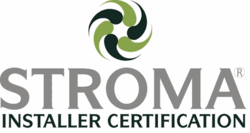


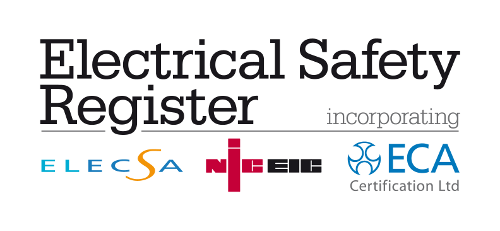
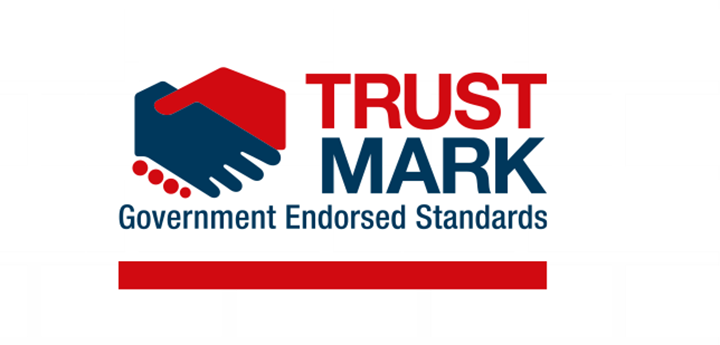
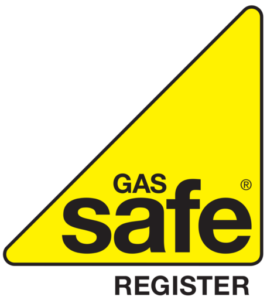
Help & Advice
-
Fire Risk Assessment in HMOs Legal Essentials for Landlords
As the landscape of rental housing evolves, Houses in Multiple Occupation (HMOs) carry unique challenges and risks, especially when it comes to fire safety. The legal framework governing fire risk
-
EICR for Landlords A Complete 2025 Compliance Guide
What Is an EICR?An Electrical Installation Condition Report (EICR) assesses the safety of a property’s wiring and fixed electrical systems. It helps ensure that your property is safe and legally
-
Energy performance certificate – What Has Changed & Why Your Property Must Be EPC C or Better
The Energy Performance Certificate (EPC) rules for UK rentals are tightening, so landlords need to be aware of how and when to upgrade.What Is an EPC?An EPC grades a property’s
-
Gas Safety Certificates & Tenant Rights
Gas safety compliance is a fundamental legal responsibility for landlords across the UK, ensuring tenant safety in homes with gas appliances. All landlords must arrange a professional gas safety check on all gas appliances, fittings, and flues in their rental properties annually, performed exclusively by Gas
-
A Comprehensive Price Guide for Landlords in London: Fire Risk Assessment, Gas Safety Certificate, EICR, and Energy Performance Certificate
Introduction to Rental Compliance in LondonIn London, landlords are entrusted with the pivotal responsibility of ensuring that their rental properties meet a series of legal obligations designed to protect tenant
-
 Fire Risk Assessment in HMOs Legal Essentials for Landlords
Fire Risk Assessment in HMOs Legal Essentials for Landlords
-
 EICR for Landlords A Complete 2025 Compliance Guide
EICR for Landlords A Complete 2025 Compliance Guide
-
 Energy performance certificate – What Has Changed & Why Your Property Must Be EPC C or Better
Energy performance certificate – What Has Changed & Why Your Property Must Be EPC C or Better
-
 Gas Safety Certificates & Tenant Rights
Gas Safety Certificates & Tenant Rights
-
 A Comprehensive Price Guide for Landlords in London: Fire Risk Assessment, Gas Safety Certificate, EICR, and Energy Performance Certificate
A Comprehensive Price Guide for Landlords in London: Fire Risk Assessment, Gas Safety Certificate, EICR, and Energy Performance Certificate



